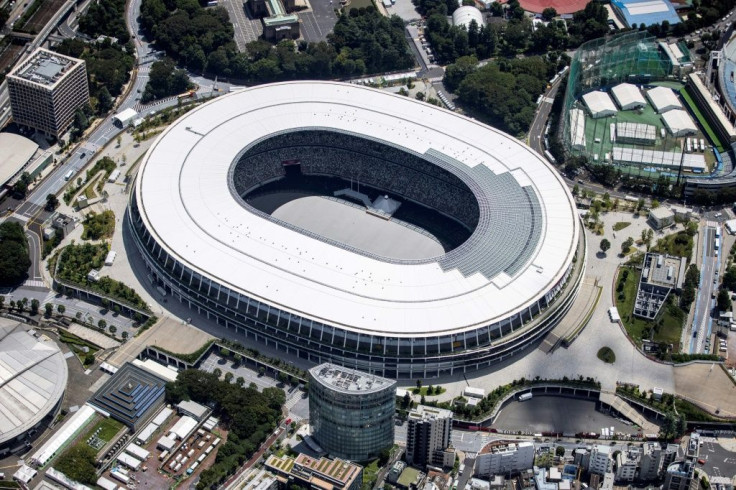Olympic TV Ratings: How Many People Will Watch The 2021 Tokyo Games?
The Tokyo Olympics are unlike any of the Summer Games in recent history, raising questions about how many people will end up watching the world's greatest athletes compete. As many of the top professional sports leagues battle declining viewership, the Olympics could also face poor TV ratings.
NBC faces multiple obstacles in getting people to tune into this year's games. For starters, the Olympics were delayed by a year because of the coronavirus pandemic. The Games will also look different because spectators have been banned amid the rising number of COVID-19 cases in Japan.
Interest in the Olympics would have potentially been down even if the 2020 Tokyo Games went off as originally scheduled. NBC's primetime coverage of the 2016 Rio Olympics averaged a 14.4 rating and 25.4 million viewers, via Sports Media Watch. That marked an 18% decrease in viewership from the 2012 London Games and the lowest ratings for the Summer Olympics since 2000.
An average of 27.7 million viewers watched the 2008 Beijing Olympics for a 16.2 primetime rating. Viewership was up four years later with 31.1 million viewers per night.
The number of homes in the United States with a cable or satellite subscription has gone down from 86 million in 2016 to 77 million at the start of 2021, according to The Hollywood Reporter. That figure includes Hulu Live and YouTube Live subscriptions, so another dip in Olympic ratings might be inevitable.
Will viewers be turned off by the lack of spectators at events? That's hard to say, though the NHL, NBA and MLB all experienced low TV ratings with no fans in the stands. Of course, plenty of factors had a much greater impact on the lack of viewership.
"We're disappointed that there won't be spectators at the events, but we've long had plans for enhancing the viewing experience across our many platforms," an NBC Sports spokesperson said, via The Hollywood Reporter. "We've had a lot of experience with events without spectators throughout the pandemic. Although unfortunate, this won't diminish the incredible stories and achievements of the athletes from Team USA and around the world."
In March, a Morning Consult survey found that 61% of U.S. adults surveyed said they expect to watch "a lot" or "some" of the Tokyo Olympics.
"Looking at prior research, that's a little better than Rio at this point," Joe Brown, a former researcher for the Comcast Inc.-owned media group who now runs JWB3 Media Insights, said in March. "And I think that's about interest in Tokyo as a host city. Intent typically follows interest in the host city. You saw it peak for London, and when we get to LA in '28, it'll be incredibly high."
NBC will broadcast the Olympics for 19 consecutive days. Because of the 13-hour difference between local time in Tokyo and Eastern Standard Time, many of the events will re-air in primetime on tape delay.
The Opening Ceremony is scheduled for Friday morning. The Closing Ceremony concludes the Games on Sunday, Aug. 8.

© Copyright IBTimes 2024. All rights reserved.












